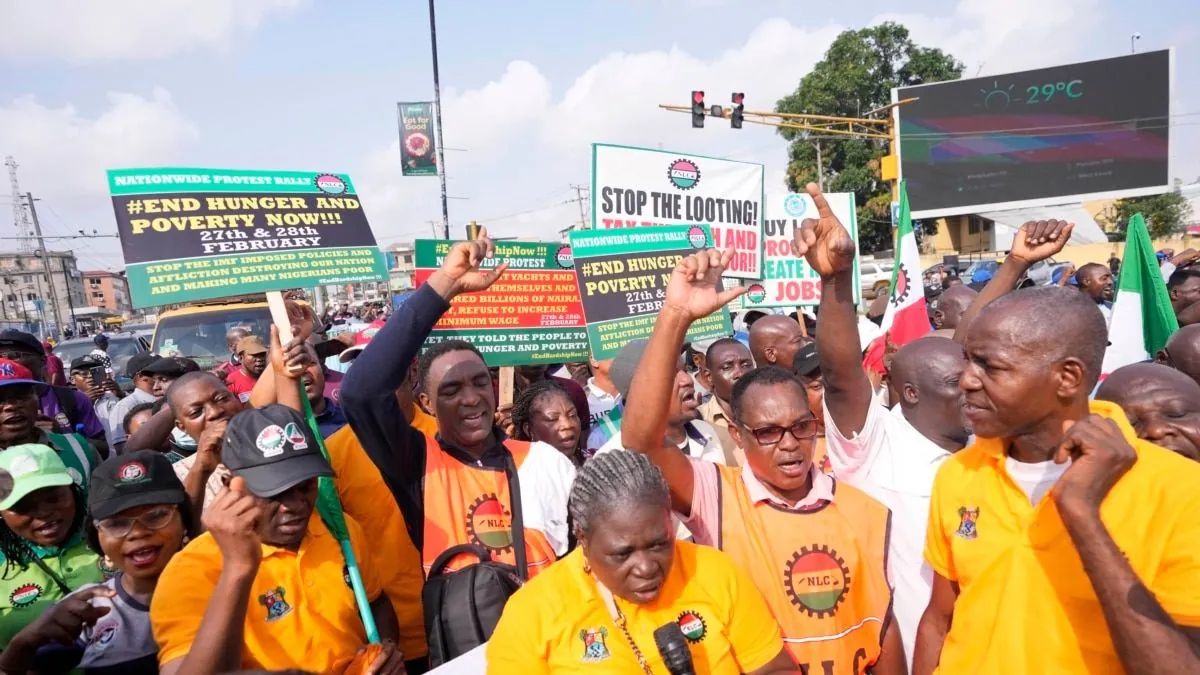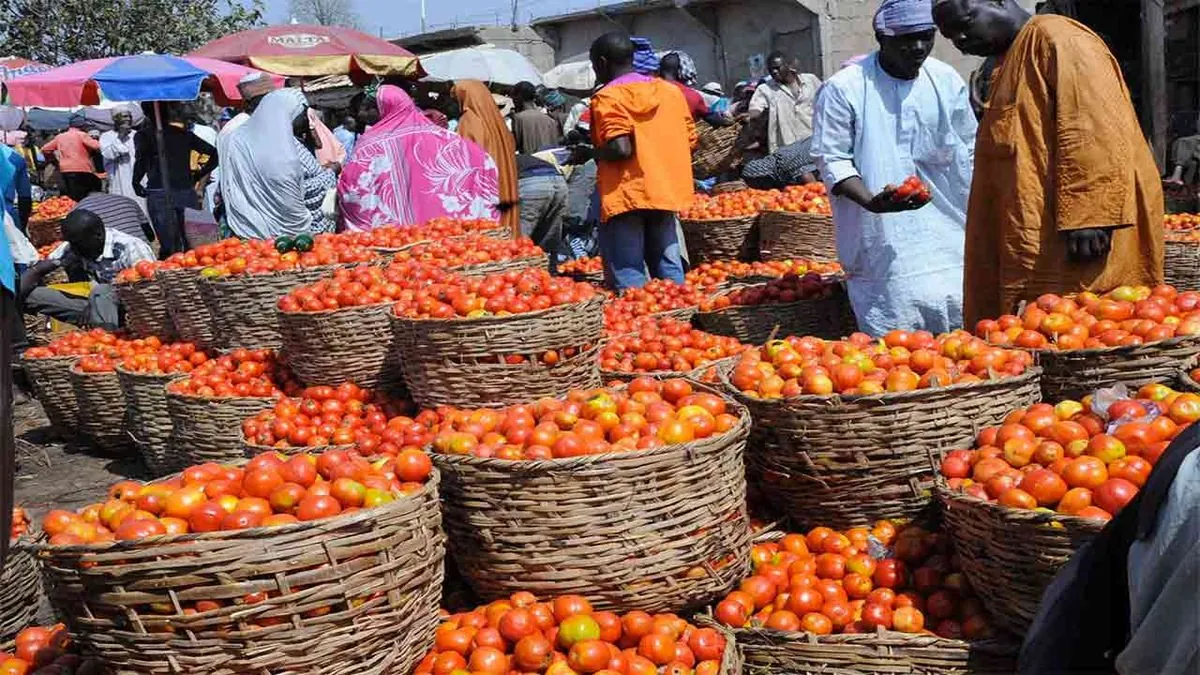Nigerian Protests Escalate as Economic Reforms Spark Widespread Discontent
Thousands of Nigerians take to the streets protesting food insecurity and economic reforms. President Tinubu defends policies amid rising inflation and calls for dialogue, while other African nations face similar challenges.

Widespread demonstrations have erupted across Nigeria as citizens voice their frustration over rising food costs and controversial economic reforms. The protests, which began on August 1, 2024, have drawn thousands to the streets, echoing similar recent demonstrations in Kenya and other African nations.
President Bola Tinubu has defended his economic policies, implemented since taking office in May 2023, as necessary for long-term growth. However, protesters argue that these reforms have exacerbated poverty and insecurity, particularly in northern Nigeria. The country, Africa's most populous with over 210 million inhabitants, has seen inflation soar to a 28-year high, with food prices increasing by more than 40% in June 2024.

Tinubu's administration has attempted to address the crisis through various measures, including increasing the minimum wage and relaunching a youth investment fund. However, critics argue that these efforts are insufficient given the scale of the economic challenges. Nigeria, despite being Africa's largest oil producer and having the continent's largest economy by GDP, continues to struggle with widespread poverty and unemployment.
"I would rather die on the streets protesting than die at home from hunger."
The government's response to the protests has been mixed, with security forces using tear gas to disperse demonstrators in several cities. At least 13 protesters have reportedly been killed, according to Amnesty International. The authorities have also been accused of disrupting internet services to hinder organized marches.
These developments occur against a backdrop of other significant events across Africa. In Niger, two Russian nationals were reportedly taken hostage by an al Qaeda-linked group. Sudan faces a dire humanitarian crisis, with famine declared in the Zamzam camp for internally displaced persons. Meanwhile, Zimbabwe has cracked down on pro-democracy activists ahead of a regional summit.
Nigeria's economic woes are part of a broader pattern of challenges facing many African nations. The continent boasts the world's youngest population, with Nigeria's median age at just 18.1 years. However, high unemployment rates and limited economic opportunities have fueled discontent among educated youth.
As the protests continue, Nigeria's government faces the difficult task of balancing economic reforms with the immediate needs of its citizens. The country's vast natural resources, including its oil reserves and growing tech startup ecosystem, offer potential for growth. However, addressing issues such as widespread poverty, the Boko Haram insurgency, and environmental degradation in the Niger Delta remains crucial for long-term stability and development.


































